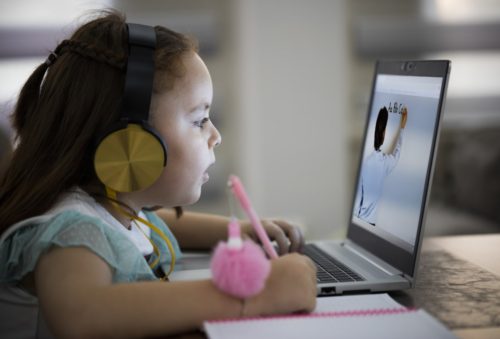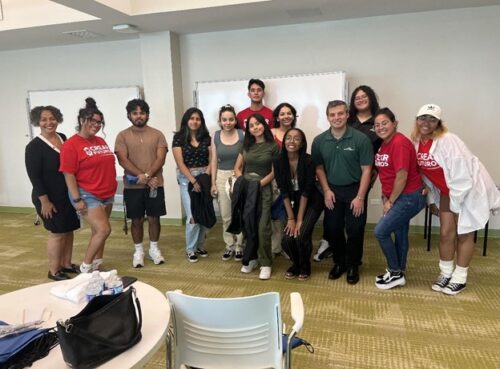
Photo Credit: Getty Images
As many schools continue to provide the option of in-class or remote learning, parents are starting to wonder if their children are being taught about body image and food intake. The educational system needs to work together with parents and be responsible for the wellbeing of their students and children, especially during the Covid season.
For several years, schools have been enforcing the importance of healthy eating and body image for students, especially those in elementary school. From ages five to ten, children do not have a great sense of identity or know how to detect what is healthy in regards to nutrition and mental health. What makes matters worse is the society’s perception of the “perfect body,” which is promoted on television, magazines, and more.
According to the Centers for Disease Control (CDC), “The dietary and physical activity behaviors of children and adolescents are influenced by many sectors of society, including families, communities, schools, child care settings, health-care providers, faith-based institutions, government agencies, the media, and the food and beverage industries and entertainment industry.”
Because these factors have a huge effect on a child’s health, schools have been a helping hand in the reduction of mental disorders and obesity by incorporating education about fruits and vegetables in the classroom or in the school garden. According to the CDC, “US students receive less than 8 hours of required nutrition education each school year,9 far below the 40 to 50 hours that are needed to affect behavior change. Additionally, the percentage of schools providing required instruction on nutrition and dietary behaviors decreased from 84.6% to 74.1% between 2000 and 2014.”
Since the coronavirus outbreak, schools began brainstorming ways of providing innovative and exciting approaches to gym class for students attending school online. According to CNN’s Matt Villano, “Some of the activities include meditation, writing a thank-you note, taking a 30-minute walk and completing yard work for a neighbor.”
Aside from the help from schools, parents can be a major influence on a child’s wellbeing. Children often look at their parents as role models and take their opinions into great consideration. With that in mind, parents’ beliefs and attitudes affect the way a child sees themselves, which is why parents should stop leaning on outside factors to prevent their child from disorders and provide or give advice on the topic.
According to the Institute for the Psychology of Eating, “A Harvard Medical School study found that mothers who over-emphasize concerns about their own weight are more likely to pass on that behavior to their children.”
Although schools in the United States enforce healthy eating, issues become highlighted when it involves trying to persuade children of a different socioeconomic and racial background to buy certain foods. Children can look at what is being eaten at home and get insecure if it does not hit a section of the food pyramid. Parents need to step in and help their child choose healthier options, while still enjoying ethnic recipes.
For many children, food intake education and guidance from counselors have been extremely helpful based on their housing situation, but there are still cases of children who are receiving this knowledge and are becoming ill. According to the Eating Disorders Coalition, Facts About Eating Disorders: What the Research Shows,” The rate of children under 12 being admitted to a hospital for eating disorders rose 119% in less than a decade.”
With the potential for another lockdown across the globe, eating disorders can be heightened due to the limitations of food available in the house. According to MSU Today, “There are also fears of weight gain due to less activity overall that may fuel concerns about weight/shape and later, eating disorder symptoms. Limitations in access to food during the pandemic also seem to be related to these symptoms.”
Since teachers are not constantly in contact with a child all day, learning about healthy eating and body image can be discussed during remote learning by the parent.







